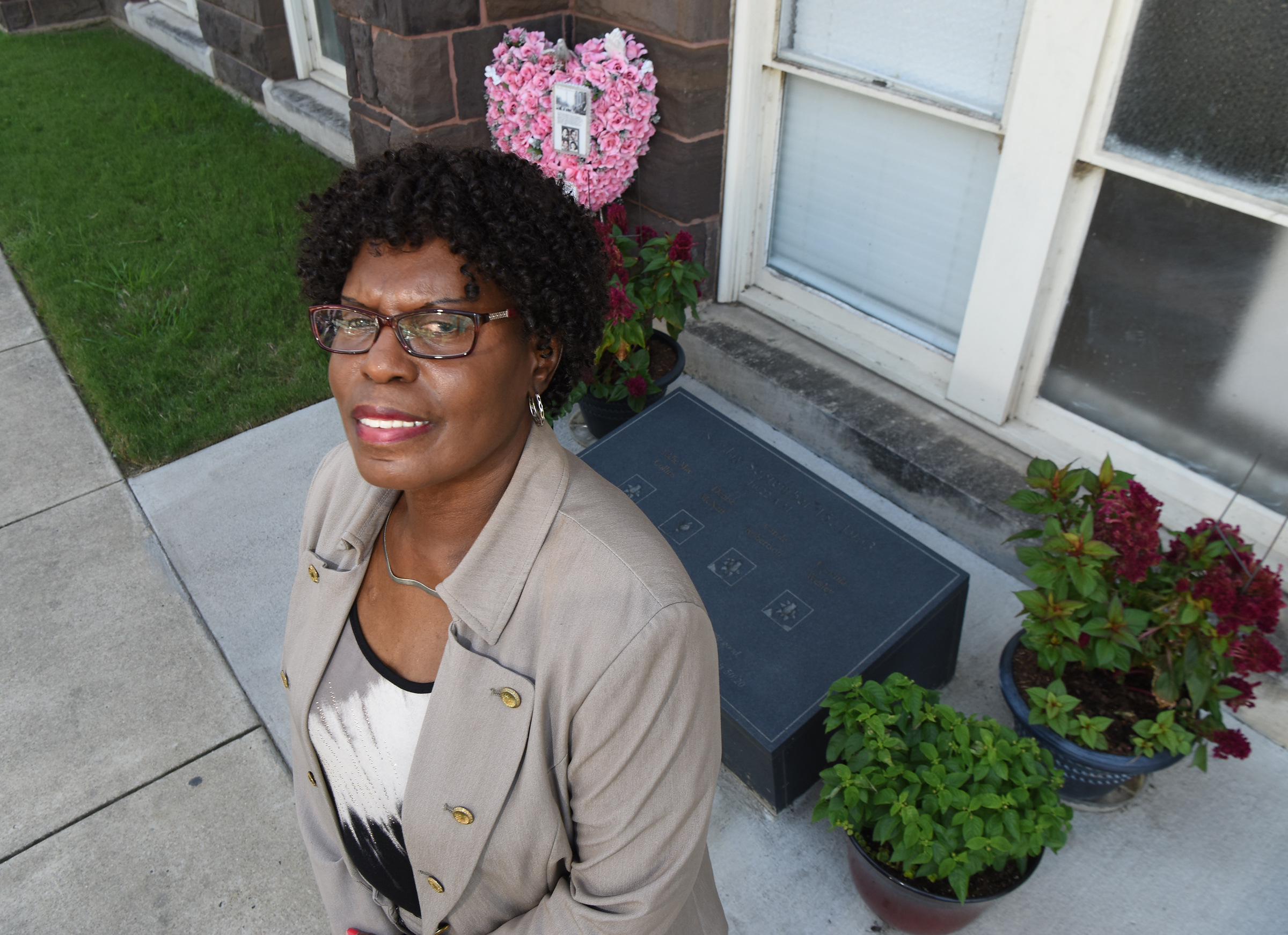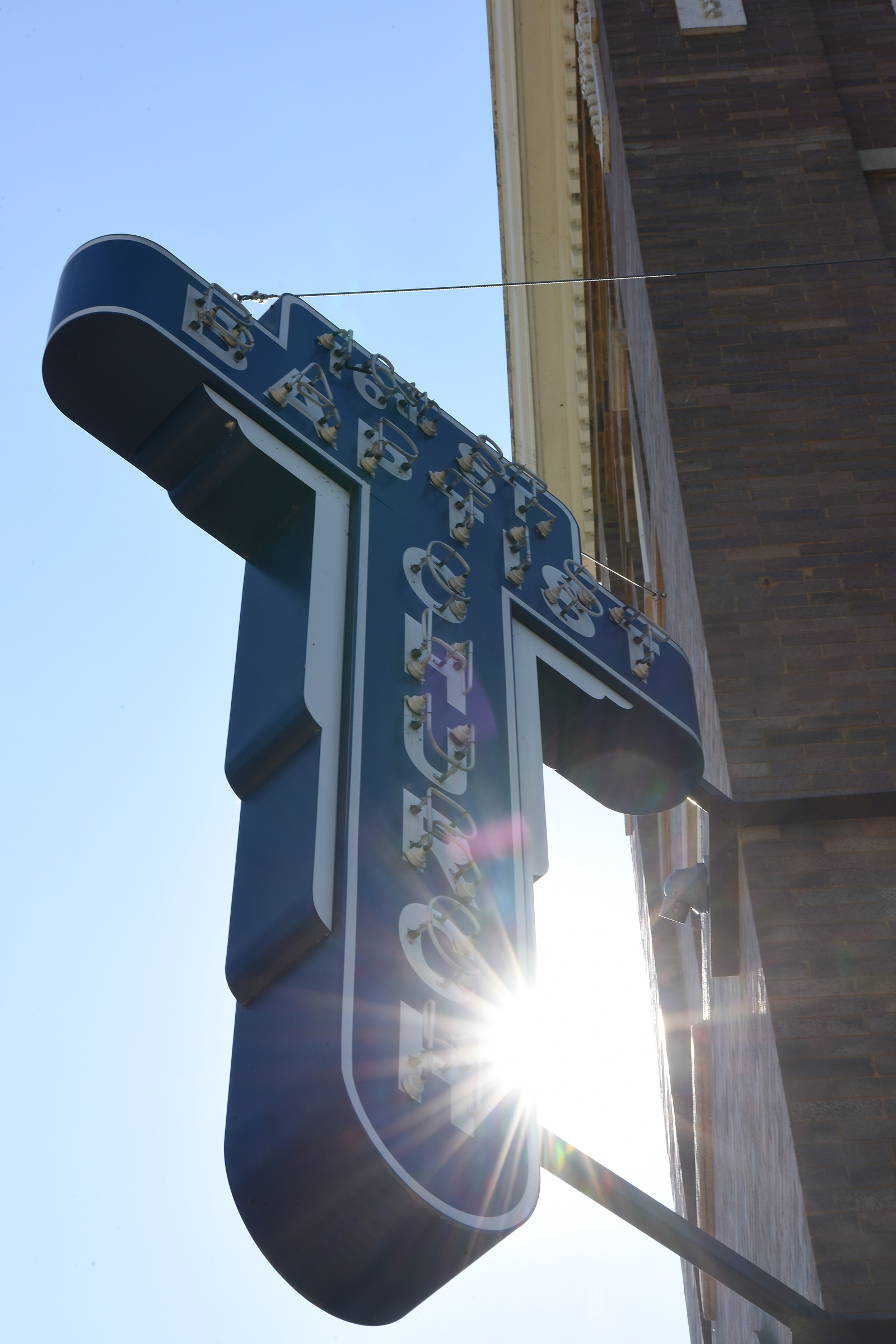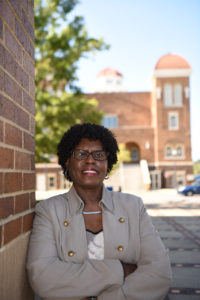
By Sarah Collins Rudolph

This is the opening chapter of “The 5th Little Girl: Soul Survivor of the 16th Street Baptist Church Bombing (The Sarah Collins Rudolph Story).”
In all thy ways acknowledge him, and he shall direct thy paths. (Proverbs 3:6, KJV)
I have come to tell the story – I have come to testify.1
I was just twelve years old when a bomb blew up our church. Just like troops cut down in the prime of youth, my sister Addie Mae Collins (age 14) and friends Carole Robertson (14), Cynthia Wesley (14), and Denise McNair (11) were instantly killed, while I was temporarily blinded in both eyes.
I was in the ladies’ lounge along with them when the 16th Street Baptist Church was bombed at 10:22 a.m. on Sunday, September 15, 1963; I’m the sole survivor. I witnessed what the girls were doing in the key moments leading up to the explosion.
When we think of these four girls, pictures of troops don’t readily spring forth. The closest any of them came to wearing a uniform was the outfit Carole would wear as a Brownie Scout. From the white dresses some of them wore that Youth Sunday to the “noble” lives they all lived, the enduring image we have of these four black girls symbolizes what it means to be pure in heart. I could only strive to live up to that idea.
But I had survived an attack, which an inscription in the basement of the 16th Street Baptist Church labeled as an act of white supremacy. Later on, people began to call me the “fifth child,” “fifth little girl” or “forgotten girl,” since it took time for the people to remember me. This story details that fateful September day and other important events in my life story and the brief lifespan of my dear sister, Addie.
Bombings had occurred from time to time in Birmingham, years before I was born but intensified when blacks began moving into white neighborhoods and onto Center Street in larger numbers during the 1940s. This trend continued for decades. Because there were so many bombings in Birmingham, folks began to call our city “Bombingham.” After the 16th Street Baptist Church was bombed, some folks began to call Birmingham the “Tragic City.” For years, people used to call Birmingham the “Magic City” because of its famous booming steel industry.
In the distant past, some folk called Birmingham the “Holy City” because of its many churches. However, troublemakers targeted men of the cloth like Reverend Fred Shuttlesworth. He survived several bombings and even a beating with brass knuckles. The fearless civil rights leader came within inches of losing his life, but none of this stopped him. Many years later Shuttlesworth wrote “in 1956, a Christmas morning bombing destroyed my parsonage as I lay in bed. No one was ever arrested prosecuted for that bombing. For a second bombing in 1958, J.B. Stoner was given a 10-year sentence, but 22 years later.”
Ground Zero
Anyway, I never dreamt terror would also strike at the heart of our house of worship, the famed 16th Street Baptist church. Bordering Kelly Ingram Park where many civil rights demonstrations regularly occurred, our church was like Ground Zero or the epicenter for the rallies that gave life to our struggle for equality. Mean-spirited folks tried to destroy or kill the Movement by attacking the body of the church; they didn’t triumph but our church was bombed.
Like a wounded soldier fighting on the Lord’s battlefield that fateful day, first responders swiftly carried me away from the sanctuary. I would permanently lose my right eye; however, I can picture the smallest details before the bombing, as if it was yesterday. I don’t recall the acrid smell after the bomb detonated, but I recall that terrible sound. “That sound, it’s in my spirit. I still jump now. I hear that bomb in my sleep.’” I had disturbing dreams for years. In an effort to soothe my soul, I tried to remember the pristine stained-glass windows throughout the church and all the fun that I used to have with my sisters and friends. I’m dedicating this book to the four little girls and our veterans; I especially want to honor those who fought in the Vietnam War and the Korean War or ‘Forgotten War.’
People may wonder, why the veterans Sarah? After all, wars are destructive. They often divide and build walls between people. And some veterans return home troubled, sick and fearful, but without societal recognition or acknowledgment. I can relate. I know how a person can suffer in silence from trauma. I know how it feels to be forgotten, overlooked. Many American veterans also fought for their rights at home. Soldiers like Medgar Evers, a World War II veteran, uncompromisingly fought for civil rights in America, even at the price of death, ultimately.

Decades later, after Americans celebrated the end of the Iranian hostage crisis in January of 1981, we started to acknowledge the sacrifices of Vietnam veterans in particular. In a post 9/11 world, we honor veterans more frequently. Unlike veterans of war, my ordeal stems from a church bombing before I recognized the signs of trauma as the “fifth little girl” or victim. Like some war veterans, I also suffer from post-traumatic stress disorder (PTSD).
Big Dreams
When I was a young, Birmingham was like a battlefield. Many youths participated in civil rights demonstrations there. During the spring of 1963, authorities arrested hundreds of young people, quickly filling makeshift jails. But, we soldiered on. My political engagement began years before the wave of protests. Mama allowed my sisters and me to picket Kroger in protest its then unfair hiring practice in Birmingham. Denise, a childhood playmate of Condoleezza Rice, was socially aware too. Denise wanted to be able to eat at any lunch counter in the city, as she expressed to her father. An honor student and clarinetist, Carole attended a conference on racial healing the very weekend before the blast. Life engaged Cynthia too. She attended church regularly and had planned to go to a social club meeting that Sunday. We all had big dreams and wanted to exercise our God-given, constitutional rights. We knew how it felt, living in the confines of segregation. We wanted change but had not imagined its steep price.
Why Was I Born?

Who would have thought that somebody would actually bomb a church during Sunday school, murdering innocent children? Looking back, I know there could have been yet a fifth body found under the rubble that Sunday…mine. A few yards separated me from the four girls killed in the bombing. I survived. I often wondered why. Mama once told me, “God spared your life for a reason Sarah.” She held fast to this belief. A “salt of the earth” type of woman, mama gave rousing testimonials after the bombing. Maybe to uplift me or encourage herself and others. This book gives me the space to honor her influence in my life. Overall, the bombing had a major effect on my family and our greater community. It silently tore at individual family members, affecting both my siblings and parents in ways seen and unseen. Personally, I have lived with physical and emotional scars and financial hardship. Perhaps the twenty-one or so other people who were injured that infamous September day, not to mention others who were traumatized, have had similar experiences.
I had so many questions, but I did not talk about the bombing for a long time. No one in my family discussed it. Like other families in Birmingham, we picked up the pieces and tried to move on. The trauma forced me to grow up fast in the trenches. As a teenager and later a young adult, I often thought about who bombed our church. The FBI opened up an investigation right after the bombing, but the authorities didn’t really hold anyone liable for years. Why? Was it due to our race? It took a long time to convict anyone. But did the court of law punish all of the wrongdoers? Furthermore, who promised to compensate Mama for Addie’s death and my life-long injuries? Mama died waiting for this help. Moreover, where are Addie’s remains? Years after her burial, we received upsetting, frankly shocking news.
Faith
In the meantime, I relied on faith to sustain me or keep me going, as I waited for the answers to many of these tough questions. In time, I came to believe God spared me to describe what occurred to four girls in a lone Baptist church for the generations to come; my soul is a witness. I miss Addie, Cynthia, Denise and Carole. This is my story but our song. It is no fairy tale. God inspired me to bear witness to help someone and be a force. Please allow this story to lift or renew your mind to do something special – whatever you may need the Creator to do. I hope you find some value in this account.
1-Hannibal Lokumbe, Philadelphia Orchestra Music Alive Composer-in-Residence, wrote and composed Crucifixion Resurrection: Nine Souls a Traveling to honor the Emanuel Nine. The “four little girls” perform as narrators in this imaginative production. The last suite of this requiem briefly references the plight of Sarah Collins Rudolph (16th Street Baptist Church bombing survivor) as well as Felicia Sanders and Polly Shepherd who survived the terrorist attack at Mother Emanuel. A talented cast staged Crucifixion Resurrection at Mother Bethel African Methodist Episcopal Church in Philadelphia, Pennsylvania on June 17, 2017.
The 5th Little Girl: Soul Survivor of the 16th Street Baptist Church Bombing (The Sarah Collins Rudolph Story) published by Africa World Press and written by Tracy Snipe (in conversation with Sarah Collins Rudolph). The book will be available through http://africaworldpressbooks.com/



